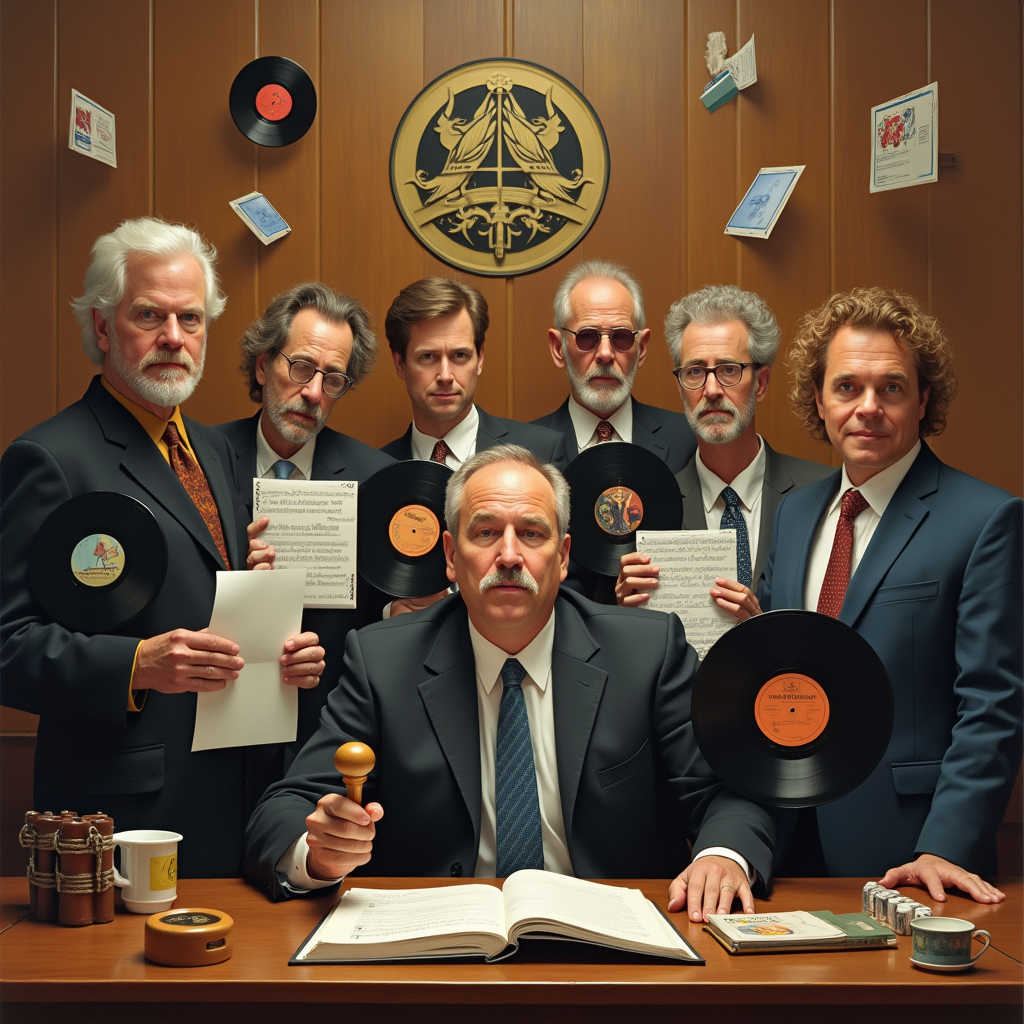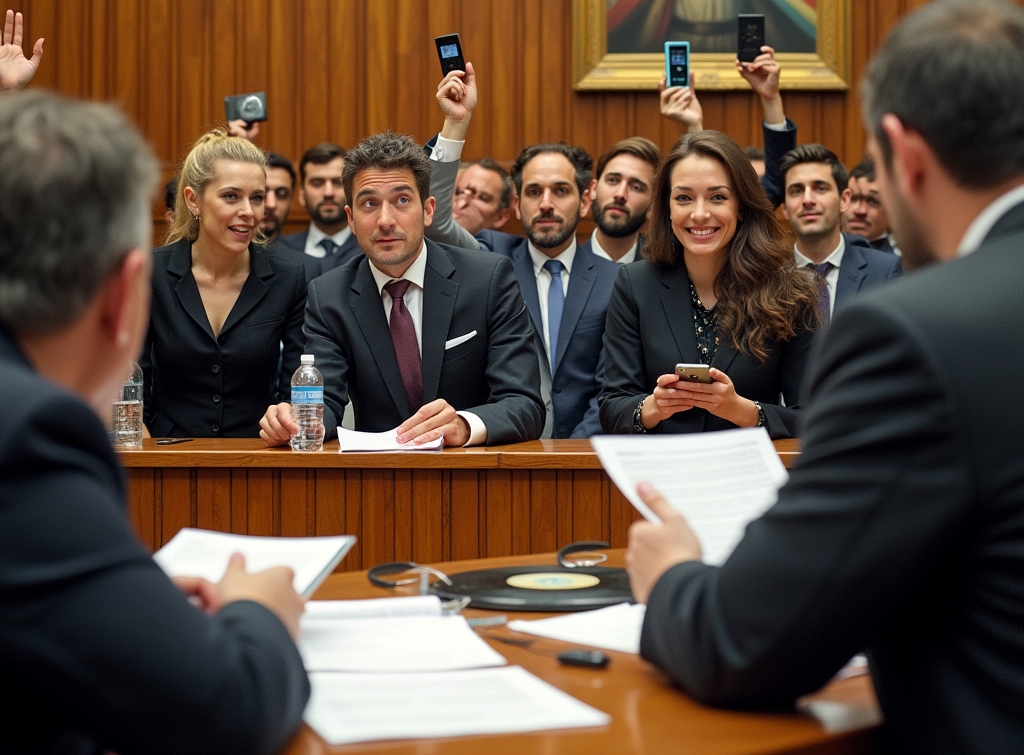This article has been written by Zeba Khan pursuing a Diploma in Technology Law, Fintech Regulations and Technology Contracts from LawSikho.
This article has been edited and published by Shashwat Kaushik.
Table of Contents
Introduction
Peer-to-peer file-sharing systems have become popular for sharing files, documents, etc. with many users at once through the internet. There are many peer-to-peer systems available, such as Napster, Gnultella, and Freenet, on the internet. Peer-to-peer file sharing systems help to connect directly to the users who have the relevant software installed in the computer system; they bypass the centralised servers. It is widely used in music, movies, and books.
In the P2P network, the files are distributed among the peers without the involvement of intermediaries. In this system, the total workload is distributed equally among peers, which reduces the burden of each system.
The P2P file-sharing market is growing globally with the increase in the number of users and a rapid demand for higher speed and capacity for internet connections. The demand for the P2P file-sharing system has increased among individuals, businesses, and government organisations, which is leading towards growth in the peer-to-peer file-sharing system in the market.
According to the statistical data given by the Recording Industry Association of America (RIAA) as of 2022, there were around 500 million active users of the P2P file-sharing system worldwide. In the early 2000s, there were around 26 million active users of this system and it is estimated to increase rapidly in the coming years.
How P2P works
Traditionally for downloading a file, the user simply searches the appropriate file on a web browser and downloads the file through the website. This is a server-client method where the website becomes the server and the user’s computer becomes the client.
But contrary to this method, if the same file is downloaded from the P2P network, then the process occurs differently. To download from a P2P network, the user has to install the software into their computer system; it will create a virtual network of P2P application users. It allows clients to send requests for the file the user wants to download. Then it locates the request to other computers (peers) via the internet. When the client finds the location, the file starts to download and the other clients are also able to obtain the file from the client’s computer. According to technical statistics conducted by Nova Southeastern University, P2P systems can reduce the download time of large files up to 70% compared to traditional server-based downloads.
Understanding copyright laws
Copyright refers to the legal rights of the owner of intellectual property. This law protects the creator’s original work from being duplicated; it protects the significant mental work of the creator, like novels, music, poetry, etc. To protect this original work by copyright laws, it should be in a tangible form, meaning the work should be in written form, whether it be music, graphic design, films, lyrics, etc. The copyright can be registered voluntarily by the original owner to protect their work from unauthorised use. Any person having the authorship of the original work can automatically get the copyrights of that work to protect and safeguard from replicating or using it. Apart from copyright, there are other forms to protect the intellectual property are trademarks and patents.
Copyrights cannot be claimed on all types of work; there are some works that don’t come under copyright laws; they are brand names, logos, slogans, domain names, and titles. It also does not protect the ideas, discoveries, concepts, theories, etc.
The Copyright laws in the United States are protected for the whole life of the original owner until 70 years after their death. The U.S. has amended its copyright laws many times till date, which has altered the duration of the copyright protection. It can be attributed to the Copyright Term Extension Act 1998, which increased the copyright term for 20 years.

The copyright laws in India are protected for the whole lifespan plus 60 years after the death of the original owner. According to the recent amendment of the copyright laws under the Copyright Amendment Act, 2012, this act offers both civil and criminal repercussions for copyright violations in the country. This act also enables the use of copyright materials for the purpose of criticism, review, news reporting, research, etc. This act seeks balance between the needs of the users and the public, as well as fostering the rights and creativity of the authors and producers.
Copyright issues in peer-to-peer file sharing
Copyright infringement means an act of violating the exclusive rights of the copyright owner. It can be any work that includes coping with or performing any copyright-protected work without the permission of the copyright holder. In the context of file4 sharing, downloading or uploading any copyright material without the permission of the copyright holder is a copyright infringement. In the United States, there are certain penalties issued under the Copyright Act for copyright infringement under civil penalties. If anyone is found liable for civil copyright infringement, they may have to pay either the statutory damages for up to $750 but not more than $30,000 per work infringed.
In a P2P file-sharing, anyone can purchase an authorised copy and upload it in the P2P network or any person can purchase a CD and create an MP3 version of it and share it with others. The person who has uploaded the file and the members who share it further are liable for copyright infringement under the federal laws.
In the Indian context, under the Copyright Act of 1957, Section 14 and Section 51(a)(ii) of the Act define copyright infringement. Section 14 defines infringement as the act of making copies of a work or communicating the work to the public. Section 51(a)(ii) defines any individual who allows a place, including virtual locations, to be used for public communication that infringes copyright as liable for copyright infringement in India.
Some examples of P2P file sharing copyright infringement
The Napster case
Napster is a website and software that was mainly used for peer-to-peer file sharing systems. It was used for MP3 music players for sharing music among peers, such that it became a worldwide phenomenon with millions of users. The users would download the Napster software, which connected them with the central server. This server has the list of music that the other users have on their computers. This enables the users to search for any music or the artist and can easily download the music from the other users who are online.
Napster faced a legal issue because it allows the sharing of the legal music without proper authorization. As a result, the court ordered Napster to stop its distribution of copyrighted music and shut down its website.
Sony Corps vs. Universal Studios
This is a Supreme Court case where Sony Corporation manufactured and sold Betamax, a home video tape recorder. In this case, the court determined that Sony’s Betamax did not make Sony liable for secondary copyright infringement. It was because Betamax had substantial non-infringing issues.
Universal Music Australia vs. Sharman Holdings case
In Australia, this case focused on the Kazaa file sharing platform and whether it authorised copyright infringement. Where the court held Kazaa liable for peer-to-peer file sharing. As a result, a claim for damages was made, but it was settled out of court instead of going for trial.
MGM vs. Grokster
In this case, a company called Grokster distributed software in a peer-to-peer file sharing system to share copyright materials through an electronic medium. Later, some musicians sued this company for infringing the copyright act by sharing files in the P2P system knowingly.
The Supreme Court ruled that despite Grokster having the potential for non-infringing uses, it was still held secondarily liable for copyright infringement.
Risks associated with P2P file sharing
In a P2P file sharing service, there are many risks involved with it. Here are some types of risks that are most common in these file-sharing systems.
Malware

This type of risk is very often faced in peer-to-peer file sharing networks; it enables the bad viruses, worms, spyware, and other malicious code into the files. It is important to understand the risk of malware by avoiding links and files from an untrusted peer. There is also the risk of cyberattacks, which are rapidly evolving.
Sensitive and prohibited content
The risk of sharing personal data through file sharing systems can have serious consequences. It is essential to be vigilant about what type of files are being shared. The sensitive data can be any financial data of any organisation or any personal information, which can be easily vulnerable.
Personal data and information
Personal identifiable information (PII) is very sensitive data that has many forms, like fingerprint data, location data, and other data. If the cyber attacker accesses it, then PII can expose people to the worst consequences. It can lead to identity theft, financial loss, reputational harm, etc. In these types of cases, it is difficult to trace the spread of the information when unauthorised parties gain access to it. It is important to ensure that the personal data is protected by strong passwords and encryptions so that it is safe from being misused.
Susceptibility and supply chain attacks
P2P file sharing networks have a major risk of third-party or supply chain attacks. As these third parties can directly target an individual node like emails or an IT admin device, this susceptibility refers to when any malicious code enters the organisation and penetrates the third party that provides services. If any virus or malware is embedded into the third-party services, it can exploit the third-party victims.
Prosecution
File sharing networks can infringe copyrighted materials and pirated software. Where most of the software can bypass the central server. It can exploit the data sensitivity and privacy of an individual. There are many data protection and regulation policies, such as GDPR (General Data Protection Regulations), which protects the data of the individual and intellectual property.
The risks cannot be overlooked by any individual, as the peer-to-peer file sharing system is unregulated and has broader, rapidly evolving systems in this digital era.
Actions that can be taken by copyright holders
Copyright holders can take a number of actions against those who share files on peer-to-peer file sharing networks without their permission, including:
Sending cease and desist letters
Copyright holders may send cease and desist letters to individuals who are illegally sharing their copyrighted content on P2P networks. These letters demand that the individuals immediately stop sharing the content and may threaten legal action if they fail to comply.
Filing copyright infringement lawsuits
Copyright holders can file copyright infringement lawsuits against individuals who continue to share their content without permission after receiving a cease and desist letter. These lawsuits can result in significant damages, including lost profits, statutory damages, and legal fees.
Requesting subpoenas to identify infringers
Copyright holders can request subpoenas from courts to obtain the identities of individuals who are sharing their copyrighted content on P2P networks. This information can be used to identify the individuals and potentially take further legal action against them.
Pursuing criminal charges
In some cases, copyright holders may pursue criminal charges against individuals who are engaged in large-scale or commercial-scale copyright infringement on P2P networks. Criminal penalties can include fines, imprisonment, or both.
Seeking injunctions
Copyright holders can seek injunctions from courts to prevent individuals from continuing to share their copyrighted content on P2P networks. Injunctions can be temporary or permanent, and they can be used to stop infringing activity while a copyright infringement lawsuit is pending.

Negotiating settlements
Copyright holders may negotiate settlements with individuals who have been accused of copyright infringement on P2P networks. These settlements can involve agreements to stop sharing the copyrighted content, pay damages, or both.
Working with Internet Service Providers (ISPs)
Copyright holders can work with ISPs to identify and take action against individuals who are sharing their copyrighted content on P2P networks. ISPs may be able to terminate the internet access of individuals who are repeatedly infringing copyrights.
These are some actions that the copyright holders can take to claim compensation and to prevent unauthorised access to the copyrighted materials.
International laws on P2P file sharing systems
Australia
The Australian laws have imposed some of the liabilities, such as strict liability on the infringers and the intentions are not necessarily required to determine whether the infringement has been done by mistake or intentionally under the Copyright Act, 1968 of Australia. In a landmark case of Universal Music Australia Pty Ltd. vs. Sharman License, this case deals with secondary liability, as the court in its judgement stated that the software named Kazaa has infringed the copyright materials by authorising the materials. It was later settled by alternate dispute resolution.
The Australian Copyright Act of 1968 has been amended in 2000 by making it more developed and strict for infringers in peer-to-peer file sharing systems, which help the owners to be protected from these infringers.
Netherlands
The Netherlands laws were changed after a new government system came into existence. According to this new law, the government guaranteed the copyright holders that they would be compensated for any copyright infringement done by the citizens of the country for using these materials privately. The compensation was issued indirectly through different means. In a case, the court has stated in its judgement that the citizens of the Netherlands cannot be permitted to use or download any copyright movies or music without paying for them. The Court had stated that the new system is more lenient towards infringement and compensating the copyright holders for infringement is unlawful.
Spain
In a case in Spain, it was ruled that it’s legal to use copyright materials for personal benefits; the users will not be held liable for any criminal punishments. This ruling sent shockwaves through the music industry, as this ruling can be seen as the Spanish laws have allowed downloading and sharing of music in the country without being punished.
In the early 2000s, there were many music labels that tried to criminalise the file sharing systems but unfortunately failed as one of the justices ruled the legality of these systems in the country.
But a few years later, the government amended new laws by which the website owners were prohibited from using any copyright materials for earning money through selling these copyright materials but the file sharing systems and search engines were exempted from this new law.
Canada
In one of the cases in Canada, the judgement that was ruled was a shock for many different countries, as it was stated in the case that downloading or sharing any music or copyright material was legal in the country.
Among all the other developed countries, Canada is the first country to legalise and amend new laws for P2P file sharing systems and not to amend laws that were agreed in the international treaty.
The United States of America
The USA laws are more strict in its copyright laws. In one of the copyright cases, which was the Napster case, the court ruled that Napster was guilty for infringement of copyright music and it was stated that despite knowing all the laws Napster intentionally encouraged its peers to share and download copyright music. Later, he was told to shut down his software and pay compensation for the damages caused by this software.
In the other case, the Sony Corps case, which was a landmark case of the US, in this case the Supreme Court held that downloading and making CDs of the television shows is legal and it does not come under copyright infringement, but rather it constitutes a fair use.
Conclusion
P2P file sharing systems are a good alternative for traditional file sharing systems. With this system, it is easier to download files from peers in less amount of time. This article has shown the distinct paradigms and standards of third-party liabilities in copyright infringements in different legal systems, including US, Canada, Australia, etc. that have been adopted to protect the intellectual property laws from P2P file sharing systems. This article focuses on the copyright issues faced by the copyright owners and the risks involved in P2P file sharing and what actions can be taken by the copyright holders in peer-to-peer file sharing systems. The article has stated some of the landmark cases related to P2P file sharing systems under different jurisdictions around the globe. In some countries like Canada, Spain, and Sweden, P2P file sharing systems are legal; perhaps the majority countries around the world have issued many amendments to their copyright laws to protect their citizens from unauthorised downloads and sharing of music and files.
 Serato DJ Crack 2025Serato DJ PRO Crack
Serato DJ Crack 2025Serato DJ PRO Crack









 Allow notifications
Allow notifications


